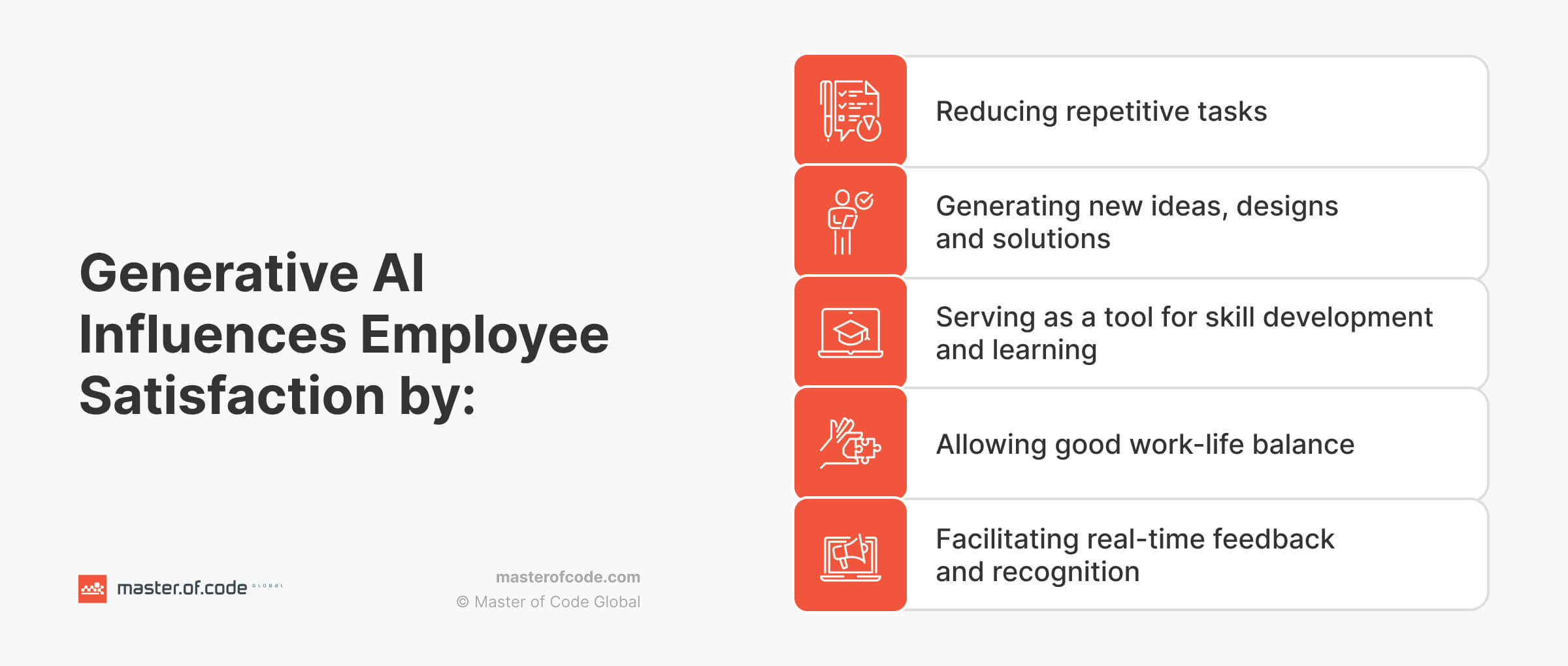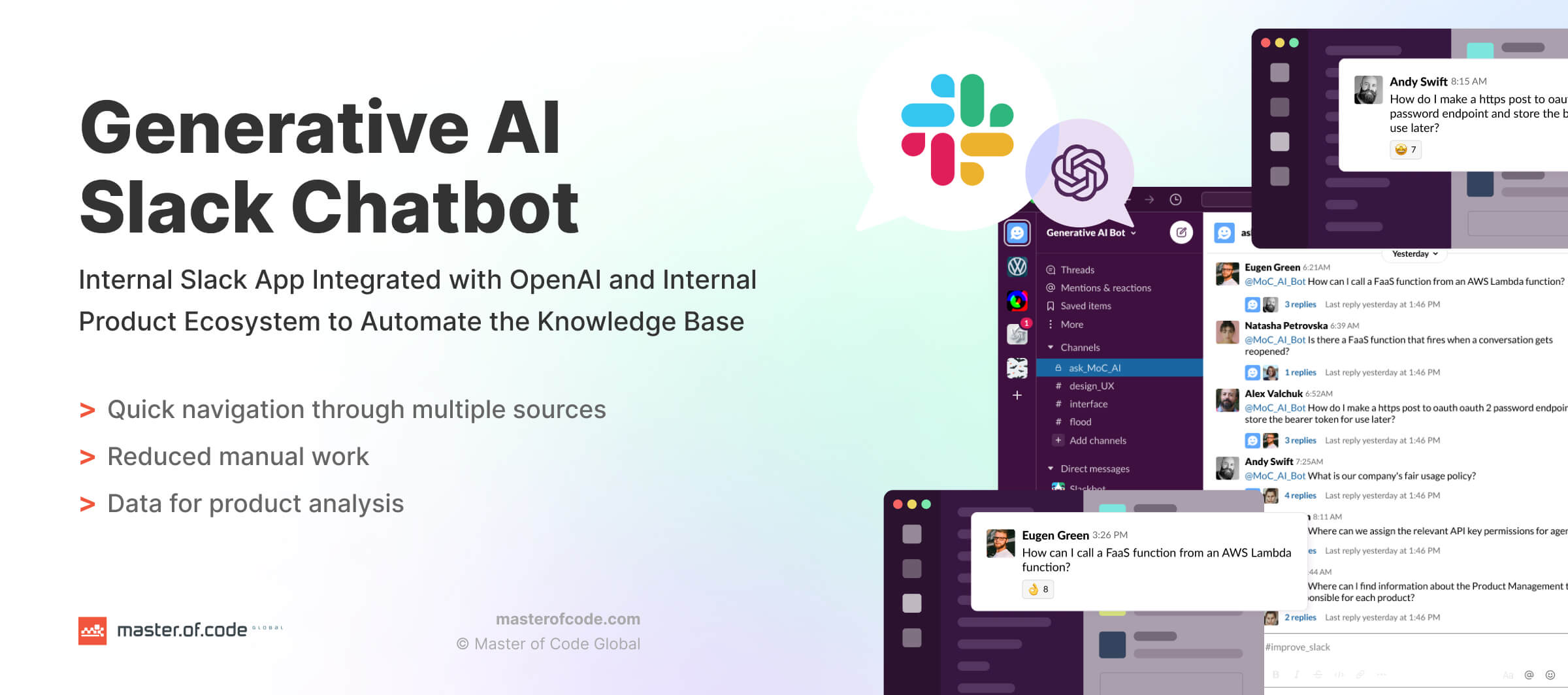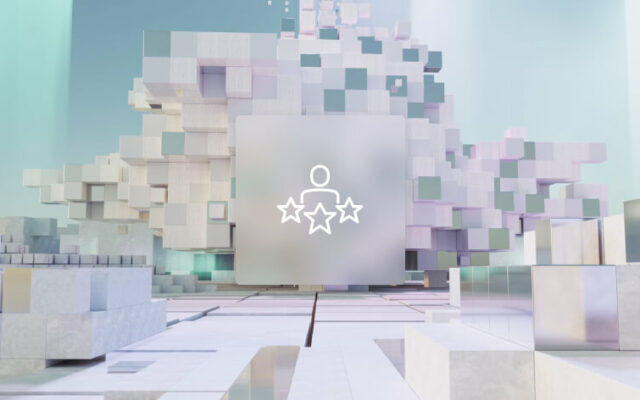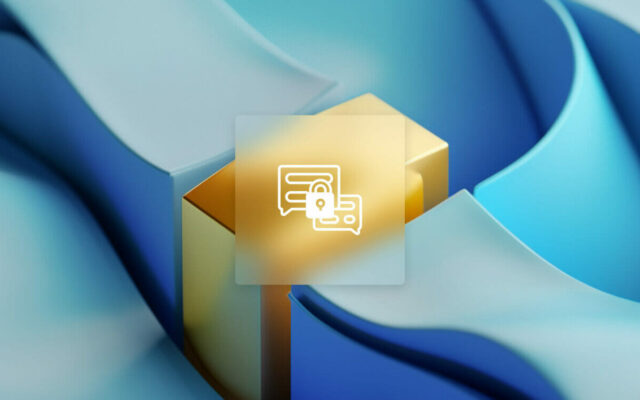Maintaining a stable workforce is crucial for organizational success. High staff turnover is a costly and persistent challenge for businesses across industries. The underlying causes are often complex, ranging from low morale to inadequate training. Fortunately, advancements in artificial intelligence (AI) offer promising solutions to enhance employee support and address the root causes of resignation.

Generative AI can be used to streamline HR business process automation, personalize employee journeys, and provide continuous learning opportunities.
According to Gartner, half of the 1,400+ organizations surveyed raised their investment in Generative AI over the last ten months. In this article, we’ll explore how generative AI for employee support can be practically implemented to tackle the critical issues contributing to staff turnover. We’ll focus on actionable strategies, showcasing how this technology can provide workers with the help they need to thrive, ultimately leading to increased satisfaction and reduced resignation rates.
Unlock 65 must-know AI use cases driving transformation across 18 key industries today.

Table of Contents
Common Employee Support Challenges

Recognizing the importance of workers’ well-being, organizations try to foster a positive job environment. As demonstrated by ThoughtWorks, Generative AI can increase software engineers’ productivity by 10-30%. Constant support is the backbone of a healthy and productive workplace. Yet many organizations struggle with a range of challenges that hinder their ability to effectively assist and empower their employees. Let’s dive into some typical issues and their impact.
Inefficient HR Processes: From onboarding and benefits inquiries to performance reviews, slow and cumbersome HR processes are a major source of frustration. Companies lose 20-30% of their revenue each year due to inefficiencies. This can leave staff members feeling disengaged and not prioritized.
Poor IT Support Documentation: Imagine an employee trying to troubleshoot a software issue only to find conflicting or incomplete information. This can lead to extended downtime and a negative impact on productivity.
Lack of Personalized Employee Engagement: A “one-size-fits-all” approach to communication and development fails to meet individual needs. Specialists may feel undervalued when their unique skills, interests, and career aspirations are not recognized. It’s even been reported that engaged employees take 37% fewer sick days than their disengaged counterparts.
These challenges not only impede employee efficiency but also contribute to:
- Decreased Morale: When people feel unsupported, their motivation suffers, impacting their overall work attitude.
- Reduced Productivity: Time spent battling inefficiencies and unresolved issues translates to lost productivity for the organization.
- Increased Turnover: People may seek opportunities elsewhere if their work environment is consistently frustrating or they don’t feel sustained in their career growth.
Simple AI-Driven Solutions to Complex Problems
Artificial intelligence may seem daunting at first. The survey shows that 3 out of 5 people (61%) are wary about trusting AI systems, reporting either uncertainty or a resistance to trust. Yet, it holds the key to surprisingly easy solutions for complex problems. Let’s explore how AI can revolutionize processes, and streamline workflows.
HR Efficiency
A chatbot for HR injects much-needed effectiveness into all the processes. From recruitment to performance management, it can:
- Craft Compelling Job Postings: Generate tailored content for different roles, saving time and attracting better candidates.
- Analyze Performance Data: Swiftly identify trends and patterns within performance reviews for better decision-making.
There are many examples among famous companies. XOR provides an AI chatbot platform for recruiting, which helps automate tasks such as candidate screening, scheduling interviews, and answering FAQs. This frees up HR teams for strategic activities.
IBM has implemented Watson Assistant, an AI-powered chatbot, for HR functions such as answering employee queries, providing information on policies and benefits, and assisting with HR processes like onboarding and performance management.
However, the Master Of Code Global possibilities don’t end here. We can develop an HR chatbot tailored to your specific requirements, ensuring it comprehensively addresses all your needs, from recruitment and onboarding to employee support and engagement.
Employee IT Support Documentation
An internal AI chatbot breathes new life into service desk interactions by providing intelligent responses and facilitating smoother communication channels. It can assist you with the following tasks:
- Automatically Generate FAQ Articles: Create clear and up-to-date knowledge base posts based on past support tickets and user inquiries.
- Personalize Troubleshooting Guides: Tailor solutions to specific user issues and system configurations, reducing confusion.
For instance, Master Of Code Global created a Generative AI Slack Chatbot that facilitates company employees in getting answers to their requests: from HR-related matters to technical aspects of the company’s products. It’s used for rapid information navigation, enhanced product understanding, and streamlined workflows.

Employee Advocacy
There is a growing emphasis on the ethical use and development of AI technologies. That’s why workers’ advocacy in Generative AI gets a significant boost. It is stated that AI improves employee productivity by up to 66%. Here’s how AI can amplify your employees’ voices:
- Personalize Social Media Content: Generate shareable content tailored to each person’s network and expertise, encouraging genuine engagement.
- Suggest Relevant Company Updates: Provide staff members with tailored prompts and examples to highlight exciting news or achievements.
A good example is Sociabble, an employee advocacy platform, which uses generative AI to suggest tailored social posts based on company news and workers’ interests. This simplifies the content creation process and drives more authentic engagement. This is just one example among others. Here, Master of Code Global can also exceed your expectations in fostering employee advocacy through innovative strategies and tailored solutions.
Implementation Strategies and Best Practices
Nearly 64% of business proprietors are of the opinion that artificial intelligence will enhance interactions with customers. Leveraging Generative AI for your professionals’ support demands a strategic approach and careful consideration to mitigate potential risks. Here’s a step-by-step guide based on our best practices to help ensure a smooth and responsible integration:
Step #1. Identify Target Areas. Prioritize where the technology can have the most impact. Start with well-defined use cases like HR FAQs or IT troubleshooting guides.
Step #2. Choose the Right Tool. Evaluate pre-trained Generative AI models or more customizable platforms. Consider factors like security, scalability, and integration with existing systems.
Step #3. Data Governance. Establish robust data handling protocols. Prioritize privacy and security measures, especially when dealing with sensitive information.
Step #4. Quality Control & Human Oversight. Implement safeguards to prevent unwanted or inaccurate outputs. Always have a human-in-the-loop to review AI-generated content.
Step #5. Combat Bias. Proactively check training data. Utilize bias mitigation techniques and diversify your development team to foster inclusive models.
Step #6. Transparency & Explainability. Build trust by explaining how artificial intelligence makes decisions. Provide employees with the option to understand and contest generated results.
Step #7. Ethical Framework. Develop an AI policy that aligns with your company’s values. Outline responsible use guidelines, bias prevention measures, and accountability mechanisms.

Remember, adopting Generative AI is an iterative process. Start gradually, rigorously monitor outputs, and gather feedback. By prioritizing data quality, human oversight, bias mitigation, transparency, and ethical considerations, you can harness the power of GAI while building a responsible and trustworthy workplace.
These things can cause difficulties if you don’t have a reliable technical partner. You can count on Master of Code Global to help you overcome obstacles, as we stand as a reliable service provider equipped with experience and expertise to meet your needs and deliver exceptional results.
Conclusion
Generative AI provides a powerful toolset to combat high staff turnover by revolutionizing employee support. Through HR automation, enhanced IT knowledge bases, and personalized engagement strategies, it addresses the root causes of dissatisfaction and frustration. The potential benefits are significant: boosted morale, increased productivity, and ultimately, a happier and more loyal workforce.
While implementation comes with considerations, the advantages for businesses are undeniable. By investing in Generative AI consulting, you take care of your staff members and the long-term success of your organization. If you’re ready to prioritize the experience of people and combat turnover, exploring the world of technology is the first step towards creating a workplace where your people can thrive.
Let us help you connect your brand with customers where they communicate today. Chat or voice.






